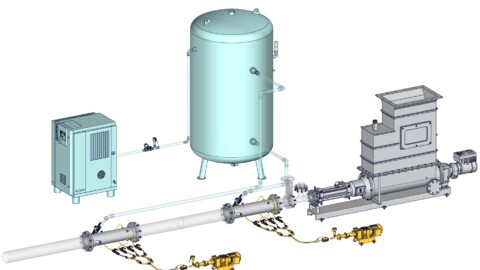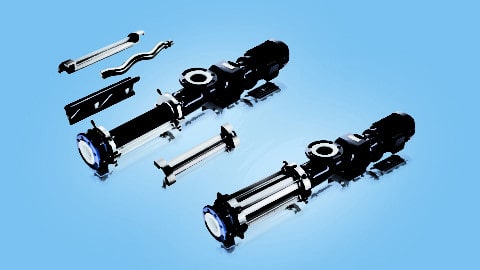The pump industry relies on expertise from a large and varied range of specialists, from experts in particular pump types to those with an intimate understanding of pump reliability; and from researchers who delve into the particulars of pump curves to experts in pump efficiency. To draw upon the wealth of expert knowledge the Australian pump industry has to offer, Pump Industry has established a panel of experts to answer all your pumping questions.
In this edition of Ask an Expert, we explore the latest challenges and solutions in wastewater treatment and what advantages progressive cavity (PC) pumps offer to the wastewater and sludge treatment industry.
Q: What are currently the biggest challenges facing the wastewater industry?
A: With the global shift towards renewable energy sources and energy conservation, the need for resource and energy-efficient sustainable management is paramount. The traditional sewage treatment plant is also experiencing significant changes and disruptions. Additionally, ensuring cost-effectiveness, reliability, and high operational safety remains a crucial challenge.
Q: What can pump manufacturers do to meet these demands?
A: Wastewater treatment is a vital part in restoring natural water quality and places high demands on the pumps used in the process. Choosing the right pump technology is key to meeting these requirements. PC pumps can significantly contribute here, as they can be used in almost all sludge treatment and disposal processes. They are durable, dependable, adaptable, low-maintenance and energy-efficient.
Furthermore, their impressive discharge pressure capabilities allow for long-distance pumping, while their minimal pulsation flow characteristic makes them a favoured choice in many wastewater applications. Compared to rotary pumps, they entail lower operating and maintenance expenses.
Q: Can you give us an example?
A: When mixing or dewatering sludge, open hopper pumps can convey dewatered sludge with up to 45 per cent dry solids. To reduce friction, industrial standard PC metering pumps inject a polymer boundary layer into the discharge pipe via an injection spool connected directly to the pump pressure branch.
Control systems check discharge and adjust the amount of liquid added accordingly. Lubricant injection reduces energy consumption and control systems ensure resource- saving dosing. PC pumps meet high quality requirements in the environmental sector by conveying reliably at low operating costs while also saving resources. The right technology makes it easy and quick to implement sustainable practices in the field of wastewater treatment.
Progressive cavity pumps: your advantages at a glance
PC pump manufacturers aim to supply solutions that not only reduce costs but also promote resource conservation.
• Energy efficient pumps: lower energy requirements
• Minimal pulsation, stable variable flow rates
• Accurate metering of flocculants
• Ease of maintenance: pumps designed with quicker and easier access to the drive side and rotor side components without needing to dismantle the pipework
• Extended pump life: high quality parts, predictive maintenance and reduced wear on components through pump monitoring
• Flexibility: installation and pump design customised to your application

















